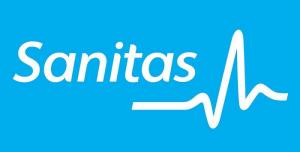Post-vacation syndrome: the trauma of returning to the routine
It is not uncommon when returning to a routine after a vacation period, we experience Postvacational syndrome. Today we explain everything you need to know about this disorder.
What is Post-Vacation Syndrome?
One of the most important indicators of well-being from a psychological and mental health point of view is the individual's ability to adapt to her environment. When there are adaptation difficulties, people often feel a state of discomfort. One of the moments typically known for its difficulty of adaptation for the general population is the return of the holidays, moment in which the person must return to their usual routine with the responsibilities and demands that day-to-day entails.
Faced with this adaptive challenge, many people experience feelings of melancholy and irritability, as a form of psychological resistance to adaptation. When this state is prolonged excessively or manifests itself in a very intense way, we speak of Post-Vacation Syndrome.
Symptoms of Post-Vacation Syndrome
Post-vacation syndrome usually manifests with low mood paintings, anxiety and / or distress, irritability, restlessness, insecurity, difficulties in concentration and sleep rhythms (both by default and by excess), etc., and sometimes depressive symptoms such as apathy, lack of interest, lack of motivation and the like may appear.
On a physical level, some of the somatizations that may appear are tiredness, poor appetite, sweating, nausea and other stomach problems. These symptoms disappear when the work and rest hours are regularized, which is a temporary discomfort that does not usually last more than a week or fifteen days. If this syndrome is prolonged, it could lead to an adjustment disorder or a seasonal affective disorder.
Who is affected by Post-Vacation Syndrome?
According to SEMYFC (Spanish Society of Community Medicine and Family), the people most affected by post-vacation syndrome are:
- Men and women, in a similar proportion, between 40 and 45 years old.
- People who go to work, without having enjoyed a transition period.
- It affects more the longer the vacation period has been.
- Individuals who idealize the vacation period as the pinnacle of their personal well-being.
- People who are unmotivated in their job and who show discomfort and apathy in their daily work activity.
- Subjects with typical pictures of Burnout syndrome They tend to suffer from a more pronounced Post-Vacation Syndrome.
How to better face going back to work?
In general have a positive attitude it always helps, at this time it is important to try to maintain it and not indulge in the feeling of discomfort that comes back to work. Give us an interpretation of the symptoms as a temporary discomfort, and do not attach too much importance to it.
Since it is likely that we have changed our body schedules during the holiday period, it is beneficial to try to regulate our biorhythm to that of the daily routine, to achieve this it is advisable to try to go to bed at the same time the days before the ending the holidays, eating regularly and introducing other routine habits gradually.
If you have the option to do so, it is preferable don't join on monday, since in this way the week will be shorter and the change from inactivity to work activity will occur gradually. Once they have been incorporated into working life, the intensity of work activity must be regulated, as far as possible.
Another more motivating way to return to work and resume the obligations of the rest of the year is take advantage of the energy load and the feeling of well-being that the holidays have brought to set new goals, both in the workplace and in other areas of our life that push us forward and grow as a person.


